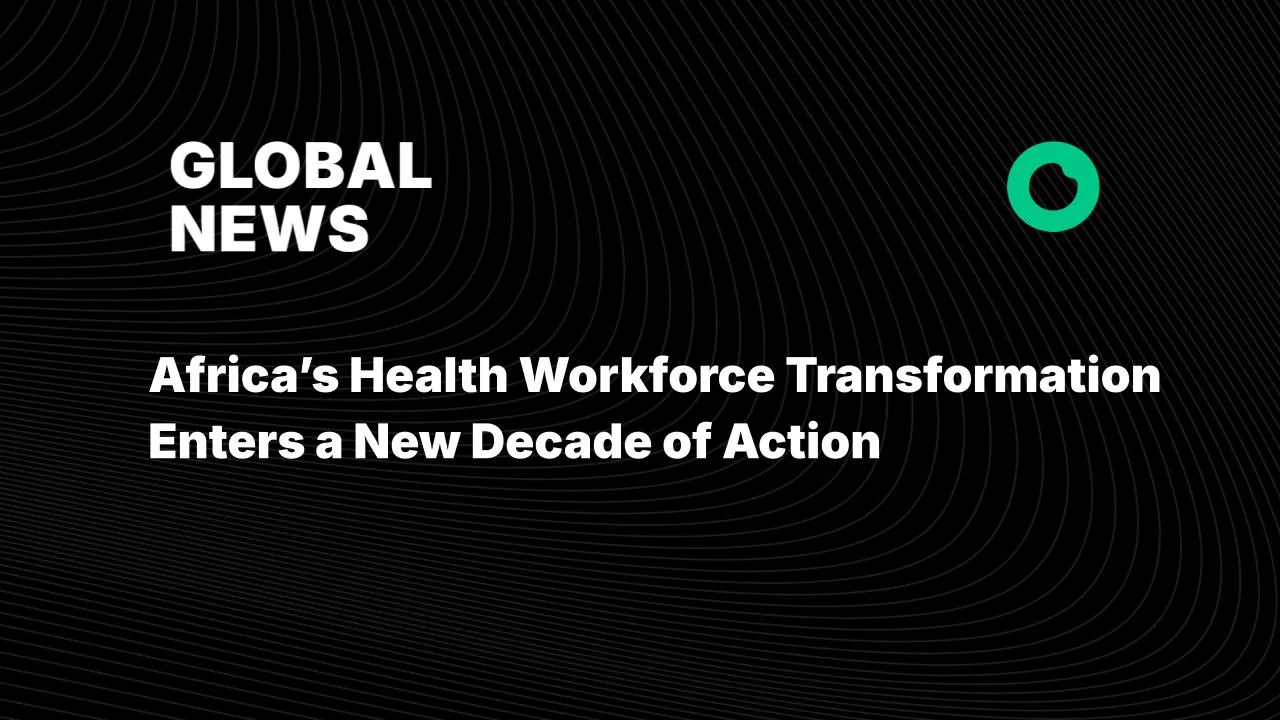According to the WHO African Region official website, African countries and global health partners have reached a landmark agreement on a 10-year Africa Health Workforce Agenda (2026–2035)—a continental roadmap designed to reshape how health workers are trained, deployed, and retained. This agreement was finalized during a high-level consultation in Pretoria, held from 24 to 26 November 2025.
A Continental Consensus Takes Shape
Representatives from Member States, regulatory councils, universities, development partners, and technical experts collaborated with the WHO Regional Office for Africa to outline the structure and priorities of the forthcoming agenda. The final plan is expected to be formally endorsed in 2026, marking the start of a structured decade of reform.
Five Pillars for a Stronger Workforce
Delegates agreed that the new strategy should focus on several core components:
- Strengthening governance and leadership of the health workforce
- Modernizing training systems and expanding high-quality education
- Improving employment conditions, retention, and equitable distribution
- Increasing targeted investments, backed by the Africa Health Workforce Investment Charter
- Creating reliable labour-market information systems for data-driven planning
This unified direction reflects the continent’s intention not just to produce more health workers, but to ensure they are well-trained, properly deployed, and adequately supported.

depositphotos.com
A Workforce Growing—But Still Far From Enough
Despite major gains—health worker numbers rose from 1.6 million in 2013 to 5.1 million in 2022—Africa remains on track to face a 6.1 million workforce shortage by 2030. Many countries continue to struggle with outdated curricula, insufficient training facilities, persistent unemployment among graduates, and steady out-migration of skilled professionals.
Experts at the Pretoria meeting emphasized that only comprehensive reform—linking education, employment, financing, and service delivery—can adequately close the gap. They warned that without decisive action, many national and regional health goals will remain out of reach.
Expert Voices Call for Accelerated Action
Dr Adelheid Onyango, WHO Director for Health Systems and Services, stressed that the agenda must deliver a workforce “fit for purpose and positioned to deliver quality, people-centred care.” She cautioned that inaction would widen the distance between growing needs and available staff.
South Africa’s Dr Percy Mahlathi echoed this call, describing the agreement as a chance to reset how the continent plans and supports its health professionals. He underlined that shared commitment and coordinated implementation will determine the success of the next decade.
A Year of Preparation Before Launch
Throughout 2025, WHO and Member States conducted extensive technical work to shape the agenda.
- Countries reviewed progress under the current regional strategy.
- A 17-member Expert Group analyzed evidence and identified priority themes.
- National and continental consultations refined the roadmap’s goals.
The Pretoria meeting served as the final step toward consensus before the region moves to formal adoption in 2026.
Sustained Commitment Will Be Key
WHO is urging governments, academic institutions, regional bodies, and development partners to maintain political and financial support. According to Dr James Asamani of WHO’s Regional Office for Africa, the Pretoria consultation “cemented a continent-wide commitment” to transforming Africa’s health workforce over the coming decade.
As the continent prepares to launch the Africa Health Workforce Agenda 2026–2035, stakeholders are optimistic that this coordinated effort will accelerate progress toward universal health coverage and improve the quality of care for millions across Africa.


